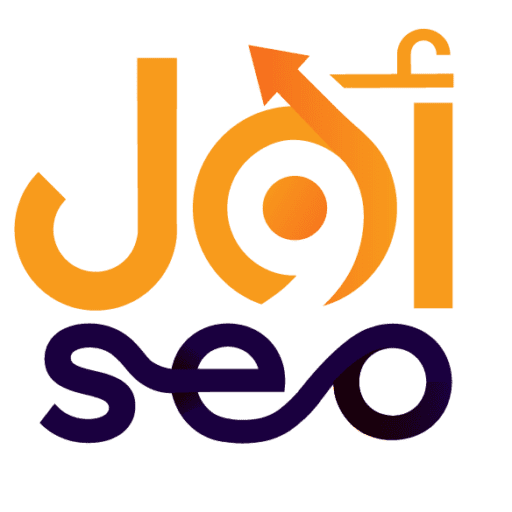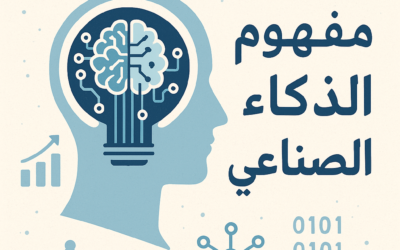Introduction to AI in SEO
Artificial Intelligence (AI) has emerged as the transformative engine behind many technological advancements in recent years, and nowhere is this more evident than in the world of Search Engine Optimization (SEO). As digital marketers, website owners, and content creators seek a competitive edge in crowded online landscapes, the integration of AI into SEO practices has become increasingly pivotal. AI reimagines how we approach SEO by bringing the capacity to learn, process, and predict—activities once reserved for human intelligence—to automated tools and platforms.
Today, the best AI for SEO not only enhances traditional processes like keyword research and content optimization, but also discovers patterns and opportunities that would otherwise remain hidden. By processing immense volumes of data at lightning speed and learning from evolving search behaviors, AI-driven SEO strategies outpace conventional techniques and set new standards of efficiency. From customizing user experiences to personalizing search intent, AI redefines what is possible in staying ahead in search rankings.
This article will journey through the world of AI technologies shaping SEO, spotlighting their functions, reviewing the top AI-powered SEO tools, and guiding you in selecting the right solution for your needs. We’ll also peer into future trends and the challenges that lie ahead as AI and SEO continue their intertwined evolution.
“AI isn’t just a tool for SEO—it’s the new engine that drives innovation and success in search. As search engines themselves become more intelligent, it’s essential for SEO professionals to harness AI to keep pace and unlock new growth opportunities.” — Dr. Emily Rosen, Digital Strategy Lead, Search Science Institute
Understanding AI Technologies in SEO
To fully grasp the significance of AI in SEO, we first need to understand the key technologies that power this revolution. When we say “AI” in SEO, we are often referring to a suite of computational techniques—machine learning, natural language processing (NLP), and advanced data analytics—that are changing the face of digital marketing.
Machine learning is at the core, enabling algorithms to learn from large datasets—search queries, click behavior, and content trends—to refine strategies without explicit human programming. For instance, AI-powered tools can predict what keywords are likely to trend, or analyze which types of content perform best for a target audience.
Natural language processing allows machines to “understand” and generate human language. In the context of SEO, this means tools can interpret searcher intent, assess content quality and readability, and even recommend semantic improvements. It brings us new perspectives in content optimization and voice search adaptation.
Data analytics, fueled by AI, transforms overwhelming data points into actionable insights. Tracking backlinks, monitoring ranking fluctuations, and benchmarking against competitors becomes more insightful and less reactive.
How AI Improves SEO Efficiency
The prowess of AI lies in its ability to automate repetitive tasks and process data with precision in seconds—what might take teams of analysts days or weeks to accomplish. From automating technical audits to managing large-scale link building campaigns, AI acts as a silent workforce, tirelessly working 24/7.
Moreover, AI’s enhanced data analysis capabilities turn raw datasets into strategic gold mines. AI uncovers trends and opportunities that might be invisible to the human eye, providing guidance on where to focus content creation efforts, what keywords are on the rise, and how to position against competitors. This orchestration of tasks and insights improves accuracy, reduces errors, and frees human teams to focus on creativity and strategic planning.
AI Tools and Their Functions
Embracing the power of AI tools for SEO has shifted from a luxury to a necessity as competition intensifies. Here’s an overview of key functions:
- Content optimization: AI tools analyze content quality, suggest improvements, and optimize for user intent and search algorithms.
- Keyword research: Algorithms scan search patterns and intent to recommend the highest-value keywords for targeting.
- Competitor analysis: AI platforms automatically monitor competitor strategies, highlighting strengths, gaps, and opportunities for advantage.
| AI Technology | Primary Function in SEO | Impact on SEO |
|---|---|---|
| Machine Learning | Predictive keyword analysis, user intent modeling | Helps predict future trends, refines SEO strategy dynamically |
| Natural Language Processing | Content quality analysis, semantic search enhancement | Improves content relevance and matches searcher intent more effectively |
| Computer Vision | Image and video SEO, visual content optimization | Enhances optimization of multimedia, aids in accessibility |
| Data Analytics (AI-powered) | Competitor research, traffic prediction, trend analysis | Identifies new opportunities, monitors ranking shifts rapidly |
It becomes clear that the landscape of SEO is evolving, with AI-driven tools providing both breadth and depth—amplifying our capabilities and keeping us at the forefront of digital discovery.
Top AI Tools for SEO
A robust AI-powered SEO strategy is only as effective as the tools we select. The market is abundant with innovative solutions claiming to be the best AI for SEO, but discerning which ones truly lead the pack requires a deep dive into features, user experience, and tangible results. Let’s explore three of the most acclaimed tools, along with notable alternatives pushing the boundaries in this space.
Tool 1: Surfer SEO
Surfer SEO has carved a formidable niche as a leading AI-driven content optimization platform. Its core strength lies in analyzing over 500 on-page factors and benchmarking them against SERP competitors, allowing creators to tailor content for top rankings.
- Features and benefits: Surfer leverages AI to scan SERP data, providing actionable recommendations on keyword density, content length, image usage, and outbound links. Its intuitive content editor grades content in real-time, while its audit feature suggests data-backed improvement strategies.
- User experience and feedback: Users praise Surfer’s visually intuitive interface and the ease with which it breaks complex optimization tasks into manageable steps. Many report time savings and measurable ranking improvements within weeks of adoption.
“Surfer SEO’s AI-powered audits were a game-changer. We saw a 30% uptick in organic traffic after integrating their recommendations into our content workflow.” — Joanne Kim, Digital Content Strategist
Tool 2: SEMrush
SEMrush has long been a staple in digital marketing toolkits but has ramped up its capabilities by integrating advanced AI and machine learning. This has elevated it from a data aggregator to a dynamic, predictive, and strategic assistant.
- Features and benefits: SEMrush’s AI capabilities power smart keyword suggestions, automated site audits, and competitive gap analysis. Its SEO Writing Assistant employs NLP to boost readability, tone, and SEO alignment in real-time. The position tracking tool now intelligently suggests keyword clusters and untapped opportunities.
- User experience and feedback: The platform’s extensive database and interconnected tool ecosystem receive commendations for streamlining end-to-end SEO operations. SMEs and agencies alike find its AI interpretations accurate and insightful, pointing to notable ROI improvements.
“SEMrush’s integration of AI has redefined how we approach SEO strategy. The proactive suggestions feel like having a data scientist on our team.” — Alex Ford, Head of Marketing Analytics
Tool 3: Clearscope
Renowned among content marketers, Clearscope specializes in AI-powered content optimization, emphasizing semantic richness and topical authority. By marrying NLP with deep industry research, it spotlights exactly what Google values most in content.
- Features and benefits: Clearscope’s content reports analyze competing pages, extract essential topics, and generate content grades based on relevance and completeness. It highlights missed keyword opportunities and helps align articles with voice search trends.
- User experience and feedback: Users relish the simplicity of the interface and actionable clarity of suggestions. Agencies notice improved content consistency and a boost in featured snippet wins thanks to its AI-driven semantic analysis.
“Clearscope is now essential to our content creation. Its AI-driven recommendations result in quicker rankings and higher user engagement.” — Priya Nair, Content Manager, Digital Growth Agency
Other Notable Tools
Alongside Surfer SEO, SEMrush, and Clearscope, several other standout tools warrant consideration for their innovative AI applications:
- Tool 4: MarketMuse — Uses machine learning to identify content gaps, recommend topic clusters, and project content ROI.
- Tool 5: Frase — AI-driven platform for answering user questions and creating comprehensive, intent-driven content briefs.
These platforms collectively raise the bar for what’s possible in keyword research, content improvement, and ongoing SEO management, making the choice of the best AI for SEO both exciting and crucial.
How to Choose the Best AI Tool for Your SEO Needs
Selecting the best AI tool for SEO is a nuanced process, requiring us to balance immediate needs with long-term performance and scalability. Just as a craftsman selects bespoke tools for each unique project, so must we carefully weigh factors before integrating a new AI solution into our workflow.
Budget is a fundamental consideration: AI-powered solutions range from affordable SaaS platforms to enterprise-grade software with advanced capabilities. The ROI equation must balance cost with the capacity to impact rankings, drive conversions, and improve efficiency.
Features should align with goals. Are we focused on content optimization, in-depth competitor research, or advancing technical SEO? Does the AI tool offer real-time analytics, predictive recommendations, or seamless integration with our existing technology stack? A checklist approach helps compare features side by side, ensuring core requirements aren’t sacrificed for flashy extras.
Scalability should not be overlooked. As our digital footprint grows, the chosen AI tool needs to handle increased volumes of content, users, or websites without a dip in performance.
Case Studies
Let’s consider a few real-world implementations.
An e-commerce retailer struggled with thin category pages and declining rankings. By deploying MarketMuse’s AI content planning and optimization solution, the team rapidly identified critical gaps and built comprehensive, search-focused landing pages. The result: a 45% increase in organic search traffic within six months.
A digital agency managing dozens of client sites adopted SEMrush’s AI-driven audit and gap analysis tools. Automation slashed reporting time by 60%, freeing up resources for strategic initiatives. Clients reported improved rankings and higher satisfaction.
“After integrating AI-powered insights from both Clearscope and Surfer SEO, our workflow became dramatically more efficient. The tools provided the competitive edge we needed to break into top SERP spots.” — Kelli Martinez, Lead SEO Specialist
| Tool | Key Features | Ideal Use Case | Pricing Snapshot |
|---|---|---|---|
| Surfer SEO | Content Editor, SERP Audit, Keyword Research | On-page optimization, keyword mapping | Starting at $59/mo |
| SEMrush | Site Audit, Keyword Gap, Writing Assistant | All-in-one SEO management, agencies | Starting at $119.95/mo |
| Clearscope | Content Reports, Semantic Analysis | Optimizing for topic authority and completeness | Starting at $170/mo |
| MarketMuse | Content Planning, Competitive Content Research | Enterprise-level content gap analysis | Custom pricing (starts free) |
| Frase | Content Briefs, Answer Engine, Question Research | Creating comprehensive, intent-focused content | Starting at $14.99/mo |
Ultimately, the best fit emerges from a convergence of functionality, usability, and future readiness. Judicious trialing, stakeholder feedback, and an evolving checklist are our best guides.
Future Trends of AI in SEO
As we peer into the horizon of digital marketing, the fusion of AI and SEO charts a compelling and continually transforming course. Much like an ever-branching tree, each technological advancement unfurls new possibilities for marketers and brands.
Emerging trends include the rise of AI-generated content at scale, predictive search optimization, and hyper-personalization, where search results and recommendations adapt fluidly to individual user behavior and context. AI-powered voice search and visual search, propelled by smarter NLP and computer vision, are expected to become dominant forces in shaping how information is discovered and consumed.
Predictions point to SEO becoming less about “hacking algorithms” and more about creating truly valuable, relevant experiences for users. With AI’s ongoing learning capabilities, we may soon see ethical SEO where search engines and optimization tools reward transparency and authenticity.
Potential Challenges
However, AI’s rise in SEO brings a suite of challenges as well. Ethical considerations and data privacy take center stage, as vast datasets are processed to personalize results. Ensuring user consent and safeguarding against misuse are growing priorities.
- Bias in AI algorithms: If not checked, AI may amplify biases present in training data, impacting fair competition and equal representation in search.
- Dependence on technology: Over-reliance on automated solutions risks de-skilling teams and missing nuanced, creative opportunities that only humans can spot.
“As AI continues to shape the contours of SEO, our collective responsibility is to ensure that technology empowers, rather than replaces, genuine human creativity and ethical decision-making.” — Dr. Amir Elbaz, Professor of Digital Ethics
In this evolving landscape, staying informed, agile, and ethically grounded will be the compass points guiding us toward SEO success in the age of intelligence.
Conclusion
The integration of AI into SEO has shifted the field from a game of guesswork and repetition to a discipline driven by intelligence, automation, and deep data insights. Today’s best AI for SEO not only streamlines our strategies but also surfaces opportunities and strengthens our competitive posture in the digital arena. As we’ve discovered, a savvy blend of the right tools, thoughtful implementation, and ethical vigilance is the hallmark of successful SEO strategies in this new era.
It’s essential for all of us in the SEO community to remain adaptable—to scrutinize and select tools that align with our unique objectives, budgets, and growth trajectories. As technology continues to evolve at a breathtaking pace, our collective edge will depend on staying current with AI for SEO trends, best practices, and upcoming innovations. By doing so, we empower ourselves to not just keep up, but to lead, in a digital world where intelligence truly is the new currency.
FAQs
-
What is AI in SEO?
AI in SEO refers to the use of artificial intelligence technologies—such as machine learning, natural language processing, and big data analytics—to automate, optimize, and enhance search engine optimization tasks. AI augments human capabilities by analyzing data, predicting trends, and making data-driven recommendations.
-
How does AI improve SEO?
AI improves SEO by automating repetitive tasks, analyzing massive datasets swiftly, optimizing content for relevance and intent, and predicting changes in search patterns. This leads to greater efficiency, accuracy, and the ability to uncover hidden opportunities faster than manual processes.
-
What are the best AI tools for SEO?
The market offers a variety of robust tools, but some of the best AI for SEO options include Surfer SEO, SEMrush, Clearscope, MarketMuse, and Frase. Each platform excels in specific aspects like content optimization, keyword research, competitor analysis, and strategy automation, making them ideal for diverse SEO objectives.




